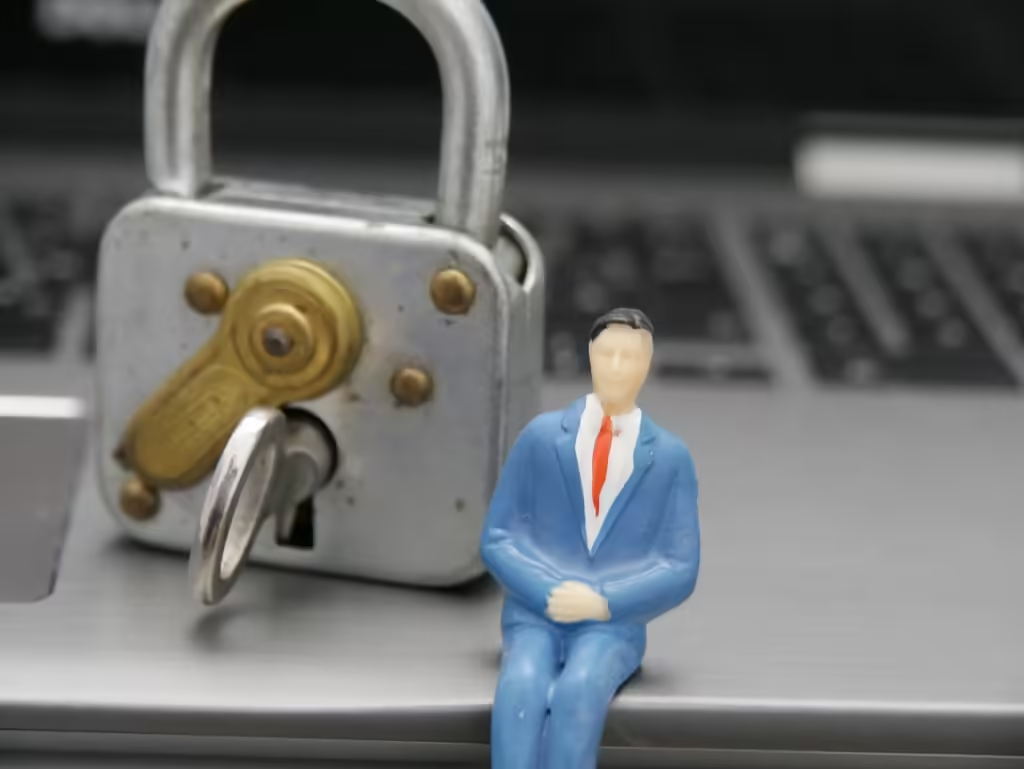Many small business owners think cybersecurity is only for large enterprises. This assumption couldn’t be further from the truth. Small businesses are just as vulnerable to cyber threats as large companies. Cybercriminals often target small businesses because they know these companies usually have weaker security measures. Then there comes the question… is cybersecurity for small businesses important?
Imagine waking up to find your business’s data has been stolen or encrypted by ransomware. Not only would this cause panic, but it could also lead to significant financial losses. The lack of robust cybersecurity measures can make a small business an easy target. Therefore, it’s crucial for small businesses to invest in cybersecurity to protect their data, assets, and reputation.
Table of Contents
Why Small Businesses Need and Use Cybersecurity
Common Cyber Threats Faced by Small Businesses
Small businesses face various cyber threats daily. One common threat is phishing, where cybercriminals send fraudulent emails to trick employees into revealing sensitive information. These emails can look very convincing, often mimicking legitimate businesses or even internal communications within the company.
Another major threat is ransomware, where hackers lock your data and demand a ransom for its release. Paying the ransom doesn’t guarantee you will get your data back, and it encourages more attacks. Additionally, malware can infect your systems, causing data breaches and operational disruptions. Understanding these threats is the first step in protecting your business.
Importance of Employee Training
Your employees are your first line of defense against cyber threats. Many cyber-attacks succeed because employees are not trained to recognize them. Regular training can help employees identify phishing emails, use strong passwords, and follow best practices for data security.
Think about it: would you let someone into your store without knowing who they are or what they want? The same principle applies to cybersecurity. Employees must be cautious about what they click on and where they enter sensitive information. Investing in regular cybersecurity training is a smart move for any small business.
Implementing Strong Password Policies
Weak passwords are a significant security risk. Many people use simple passwords or reuse the same passwords across multiple accounts. This practice makes it easier for cybercriminals to gain access to your systems. Implementing strong password policies is essential in protecting your business.
Encourage your employees to use complex passwords and change them regularly. Passwords should include a mix of letters, numbers, and special characters. Also, consider using a password manager to help store and manage passwords securely. By enforcing strong password policies, you can significantly reduce the risk of unauthorized access to your systems.
Using Multi-Factor Authentication (MFA)
Multi-Factor Authentication (MFA) adds an extra layer of security to your accounts. Even if a cybercriminal manages to get hold of a password, they would still need a second form of verification to access the account. This could be a text message code, an authentication app, or even a fingerprint.
MFA is simple to implement and greatly enhances your cybersecurity. It’s like adding an extra lock to your door. While one lock might be picked, having two locks makes it much more difficult for intruders to get in. Implementing MFA for all your business accounts is a smart way to protect your sensitive information.
Regular Software Updates and Patching
Outdated software is a common target for cyber-attacks. Cybercriminals look for vulnerabilities in old software versions to exploit. Regularly updating and patching your software ensures that you have the latest security features and fixes.
Consider this: would you drive a car with faulty brakes? Probably not. The same logic applies to using outdated software. Keeping your software up to date helps protect your business from potential security breaches. Schedule regular updates and make sure all software, including operating systems and applications, are patched promptly.
Backing Up Your Data
Data loss can be catastrophic for any business. Regular data backups ensure that you can quickly recover your information in the event of a cyber-attack. Backups should be stored in a secure, offsite location, separate from your main systems.
Imagine losing all your customer data, financial records, and important documents overnight. Without backups, it could take months to recover, if recovery is even possible. Regular backups provide a safety net, allowing you to restore your data and resume operations with minimal disruption. Make data backups a routine part of your cybersecurity strategy.
Using Firewalls and Antivirus Software
Firewalls and antivirus software are basic yet essential components of cybersecurity. Firewalls act as a barrier between your network and potential threats, while antivirus software helps detect and remove malicious software.
Think of a firewall as the bouncer at a club, only allowing in those who meet certain criteria. Antivirus software is like a vigilant security guard, always on the lookout for trouble. Together, they provide a strong defense against cyber threats. Ensure that all your devices are protected with up-to-date firewalls and antivirus software.
Secure Your Wi-Fi Networks
Unsecured Wi-Fi networks are an open invitation to cybercriminals. Make sure your business’s Wi-Fi network is secure by using strong passwords and encryption. Also, consider setting up a separate network for guests to prevent unauthorized access to your main network.
Imagine someone sitting outside your business, accessing your network and stealing your data without you knowing. This scenario is entirely possible with an unsecured Wi-Fi network. Securing your Wi-Fi is a simple yet effective step in protecting your business from cyber threats.
Implementing a Cybersecurity Policy
A comprehensive cybersecurity policy provides guidelines for employees on how to protect the business’s data and systems. This policy should cover password management, data handling, email protocols, and incident response procedures.
Having a clear cybersecurity policy is like having a playbook for your favorite sports team. Everyone knows their role and how to respond in different situations. This preparedness can make all the difference when facing a cyber threat. Develop and enforce a cybersecurity policy to ensure everyone in your business is on the same page.

Conducting Regular Security Audits
Regular security audits help identify vulnerabilities in your systems before cybercriminals can exploit them. These audits should be thorough and cover all aspects of your cybersecurity measures.
Think of a security audit as a routine health check-up for your business. It helps catch any issues early before they become major problems. By conducting regular security audits, you can ensure your cybersecurity measures are effective and up to date. Schedule these audits regularly to stay ahead of potential threats.
Partnering with Cybersecurity Experts
Sometimes, it’s best to leave things to the experts. Partnering with a firm of cybersecurity for small businesses can provide the expertise and resources needed to protect against cyber threats. These experts can help with everything from risk assessments to incident response.
Consider this: you wouldn’t try to fix a plumbing issue without a plumber. The same goes for cybersecurity. Hiring experts can save you time and stress, ensuring your business is well protected. Invest in professional cybersecurity services to safeguard your business.
The Benefits of Strong Cybersecurity for Small Businesses
Protecting Your Business’s Reputation
A data breach can severely damage your business’s reputation, and cybersecurity for small businesses is a solution. Customers trust you with their sensitive information, and failing to protect it can lead to loss of trust and customers. Strong cybersecurity measures help maintain your reputation and customer loyalty.
Imagine hearing that a local business you frequent had a data breach. Would you feel safe continuing to shop there? Probably not. Protecting your business’s reputation is essential for long-term success. Invest in cybersecurity to keep your customers’ trust and your business thriving.
Avoiding Financial Losses
Cybersecurity for small businesses can be very beneficial when you know that cyber-attacks can be expensive. From paying ransoms to dealing with legal fees and regulatory fines, the costs can add up quickly. Implementing robust cybersecurity measures can help you avoid these financial pitfalls.
Think about the last time you had an unexpected expense. It’s stressful and can throw off your entire budget. The same applies to your business. Preventing cyber-attacks is much more cost-effective than dealing with their aftermath. Invest in cybersecurity to protect your business’s financial health.
Ensuring Business Continuity
Cyber-attacks can disrupt your business operations, leading to downtime and lost revenue. Having strong cybersecurity measures in place helps ensure that your business can continue operating smoothly, even in the face of a cyber threat.
Imagine your business being forced to shut down for days or even weeks due to a cyber-attack. The lost revenue and customer trust would be significant. By investing in cybersecurity, you can minimize disruptions and keep your business running smoothly. Make cybersecurity a priority to ensure business continuity.
Compliance with Regulations
Many industries have regulations regarding data protection and cybersecurity. Failing to comply with these regulations can result in hefty fines and legal issues. Implementing robust cybersecurity measures helps ensure your business stays compliant with relevant laws.
Think of regulations as the rules of the game. Breaking the rules can lead to penalties and a tarnished reputation. Staying compliant is essential for avoiding legal troubles and maintaining your business’s integrity. Invest in cybersecurity to meet regulatory requirements and avoid potential fines.
Gaining a Competitive Edge
Strong cybersecurity for small businesses shows a competitive edge. Customers are becoming more aware of data privacy issues and are likely to choose businesses that prioritize cybersecurity. Promoting your robust cybersecurity measures can attract more customers.
Imagine choosing between two businesses, one with strong cybersecurity measures and one without. Most people would choose the safer option. By investing in cybersecurity, you can differentiate your business and attract customers who value data privacy. Make cybersecurity a selling point for your business.
Peace of Mind
Cybersecurity for small businesses can provide peace of mind. You can focus on growing your business without constantly worrying about potential cyber-attacks. Think about the last time you were worried about something. It’s hard to focus on anything else. The same goes for cybersecurity. Protecting your business allows you to concentrate on what you do best. Invest in cybersecurity for peace of mind and a secure future.
MATUR Intech Cyberhub as Your Cybersecurity for Small Businesses
Investing in cybersecurity for small businesses is crucial for the success and longevity. Protecting your data, assets, and reputation should be a top priority. By implementing the measures discussed in this article, you can safeguard your business against cyber threats.
At Matur Intech Cyberhub, we understand the unique challenges small businesses face regarding cybersecurity. We offer comprehensive cybersecurity solutions tailored to your specific needs. Visit our website at Matur Intech Cyberhub to learn more about how we can help protect your business. Let us be your partner in ensuring a secure and prosperous future.


